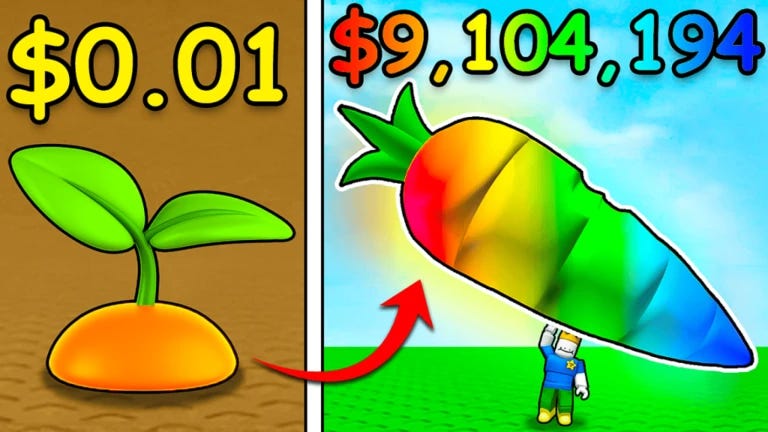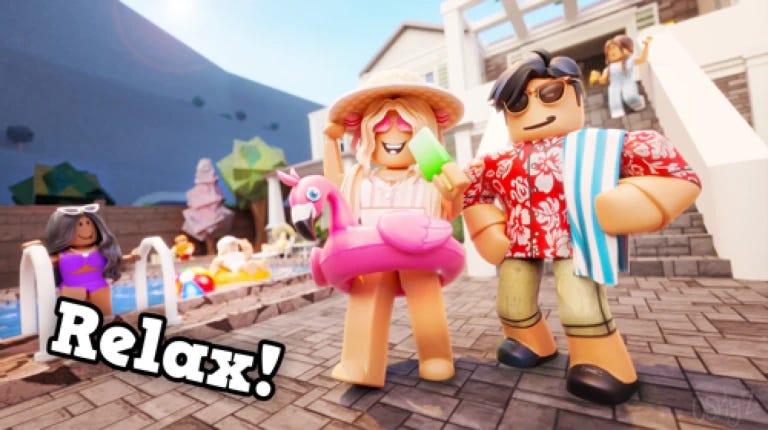Last week, my dad got the same scary news from, like, everyone—my grandma, my mom (awkward), and people from the Marketing Accountability Council.
A 10-year-old girl got taken by a 27-year-old man she met on Roblox and Discord. He didn’t break in or hide in bushes. He talked to her online. Gained her trust. Then drove 250 miles and took her.
I’m 11. I play Roblox. I watch YouTube. And I know this stuff is real. That’s why we’re writing this so adults actually understand what it’s like for kids online.
I don’t use my real name. Obviously.
I make up usernames. Not to be shady—to stay safe.
If someone asks your name, age, where you live, or what school you go to? 🚩🚩🚩 You don’t talk. You block. You bounce.
Here are my favorite games
Grow a Garden – I plant stuff. Chill vibes. Until I say “mangoes” and Dad asks if we’re having digital fruit for dinner. (We’re not.)
Bloxburg – I have a job, earn money, and drive to the pizza shop. Then Dad freaks out like I stole an actual car. I didn’t. It’s pretend. Calm down.
This is not like when my dad played Super Mario Bros.
Back in the day, my dad played games that had one path. You went from level 1 to level 2 to level 3, jumped on some mushrooms, and saved the princess. Game over.
My games? They never end. They’re:
Open-ended
Social
Competitive
Constantly updating
There are leaderboards, team goals, trading systems, and sometimes a little chaos. You can build, hang out, run a business, or express your style.
It’s like real life but blocky.
Welcome to the Roblox Economy: Where Your CEO Might Be 12
Let’s get something straight—Nintendo doesn’t make these games. Users create them in Roblox Studio. Some are kids. Some are adults. And if their game gets traction? They can earn real money in Robux. It’s an open-world economy powered by creativity, attention, and a dash of chaos.
Anyone Can Build a Game
Roblox Studio is free and relatively easy to learn. No degree required. If you can imagine it, you can build it. That means the developer of the next viral hit might be a teenager working between homework assignments. Or a full-blown indie studio. The gatekeeping is gone.
Robux = Real Money
Games monetize through in-game purchases, such as passes, accessories, and upgrades. Users buy them with Robux, which developers can cash out. Yes, there's an exchange rate. Yes, Roblox takes a cut. And yes, developers pulled in over $600 million last year. This is the creator economy in action.
Engagement Is Built-In
Anyone can talk to you. Anyone can play with you. Roblox is inherently social, which is excellent for the community and risky for safety and moderation. It’s also a dream (or nightmare) for marketers: engagement is high, but so is the unpredictability.
The Virality Trap
A game can blow up overnight if it lands in the right stream or on TikTok. That’s the gold rush. But it also fuels design choices that prioritize stickiness over ethics, such as intermittent rewards, FOMO, and manipulative retention loops. If B.F. Skinner had a dev team; he’d be right at home here (my dad told me about him).
More Than Games
Don’t want to build a whole world? Fine. You can still create assets, avatars, and animations. Roblox has a thriving creator marketplace—think Etsy for 3D models. You’re either building worlds or selling the bricks.
So Why Should Marketers Care?
Because this isn’t just child’s play—it’s a cultural engine. Roblox is where Gen Alpha lives, shops, socializes, and self-expresses. Ignore it, and you’re missing the next frontier of digital engagement.
But here’s the caveat: don’t be shady.
Inflated metrics? They’ll catch you.
Predatory monetization? That road leads to lawsuits, not loyalty.
Tacky branded content? The kids will roast you, publicly.
To thrive in this space, your brand needs to create real value, respect attention spans, and avoid the urge to manipulate. Roblox isn’t just a game—it’s a lesson in marketing for the next generation. Show up smart, or don’t show up at all.
I’ve gotten weird messages, and I know when to bounce
Some people try to act way too friendly. Asking if I have Instagram. Asking to “adopt” me in a game. That’s my cue to leave, block, and move on.
Even if it doesn’t seem scary right away, you have to pay attention. It can change fast.
Yes, kids have spam accounts
Sometimes just for fun. Sometimes, to avoid restrictions. It’s not always shady, but if something bad happens on one of those accounts, kids won’t always say anything.
Why? Because we’re scared we’ll get in trouble for even having the account.
So we stay quiet. And that’s where the danger is.
What I wish parents understood
Here’s what doesn’t work:
Freaking out.
Blocking everything.
Acting like the internet doesn’t exist.
Here’s what does:
Ask what we’re playing.
Listen.
Teach us what to watch out for before it’s too late.
Make sure we can tell you things without getting grounded into silence.
If you want honesty, you have to be someone we’re not scared to talk to.
Final thought (and one more dad joke, because of course)
The girl who was kidnapped? She probably didn’t even know something was wrong. That’s why this matters. These people start out sounding nice. That’s how they do it.
So talk to your kids. Learn the games. Ask what a “mango” means before panicking.
And Dad, no—I’m not buying authentic pizza. It’s fake in a game. I’m fine.





